The story of the Ratan Tata Trust’s 20 year support for research into “the administration of relief and prevention of destitution” illustrates LSE’s long relationship with both South Asia and the search for a solution to inequality, finds LSE Archivist Sue Donnelly.
In 1912 Sir Ratan Tata (1871-1918) gave the University of London a generous donation of £1,400 per year for three years to fund research into poverty and inequality. The donation supported a proposal by Edward Urwick (1867-1945) Leonard Hobhouse (1864-1929), both professors at LSE, for a research foundation investigating the prevention and relief of destitution.
The proposal suggested that investigation into the administration of relief and prevention of destitution “should not be confined to questions of private philanthropy, but should extend to legislative and administrative measures dealing with poverty, pauperism and the causes and effects thereof.” The research would be historical, statistical and international and include research, education and popularisation. A senior investigator supported by a research student and a secretary and typist would be based at LSE.
![Sir Ratan Tata. Credit: By Globalfunky (Own work) [CC BY-SA 3.0 (https://creativecommons.org/licenses/by-sa/3.0)], via Wikimedia Commons](https://blogs.lse.ac.uk/lsehistory/files/2017/10/Sir_Ratan_Tata.jpg)
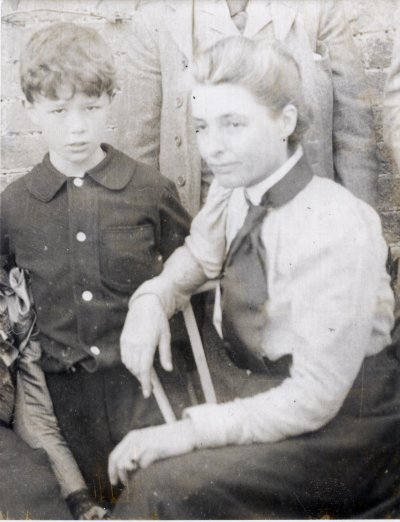
Beatrice Webb’s diary, 8-10 April 1912, records that Tata’s offer to fund a school of investigation and research into economics in Bangalore alongside the Indian Institute of Science had been rejected as the British government in India:
Is so afraid of any intellectual development among the Indians because it finds that intellectual development always leads to a desire for self-government.
Tata had approached the University of London and agreed to give £1,400 a year for 3 years.
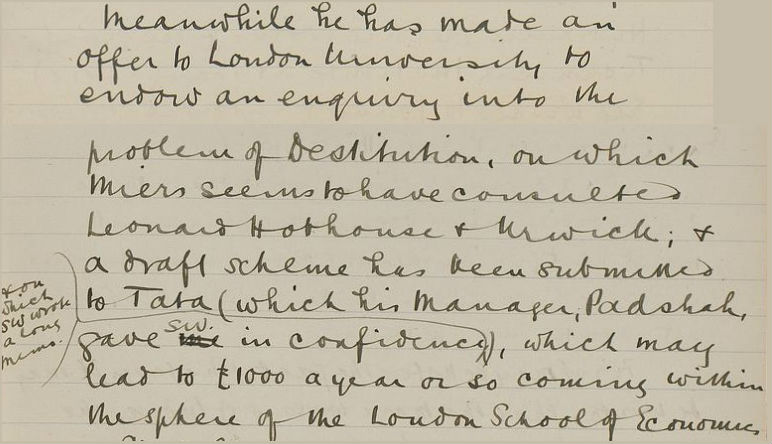
In a letter from Sir Ratan Tata to the University of London dated 28 March 1912, he explained:
But it is not unlikely that much human effort is wasted in the absence of available or obtainable positive information in this direction and that much human sympathy that might be enlisted for the relief of destitution is too disheartened by past results and contradictory present advice to show itself.
In 1913 R H Tawney (1880-1962), later Professor of Economic History, was appointed Director of the Ratan Tata Foundation and began an investigation into minimum standards of remuneration for workers. The work of the Foundation was interrupted by the First World War. In November 1914 Tawney volunteered for army service and John St George Heath (1882-1918), the Quaker warden of Toynbee Hall, was appointed as Director but war conditions made research difficult.

Despite this the Ratan Tata grant was renewed for a further five years in 1916. The foundation and department were merged and transferred to the direct management of the University of London – though it continued to be housed at LSE. The LSE Director, William Pember-Reeves wrote:
I admit that it is with some regret that I see a department which we have, without question, made very successful, transferred to the University. Still, the needs of the department were growing at a greater rate than funds at the School’s disposal for its benefit and the benefaction of Sir Ratan Tata will make possible developments which I think will result in the establishment of courses of training for social work better than any to be obtained elsewhere in the UK.
Sir Ratan Tata died in St Ives in 1918 and was buried in the Parsi burial ground in Brookwood Cemetery. His trustees confirmed their continued support for the project and peacetime brought an increased demand for training and research into welfare work. In June 1919 the course was advertised as “designed to prepare students for any form of social work and in connection with it there are special departments under experienced tutors for training for welfare work in factories and for continuation school teaching” and by 1920 there were 80 students. The Department also signed an agreement with G Bell and Sons for the publication of The Social Service Library edited by Clement Attlee.
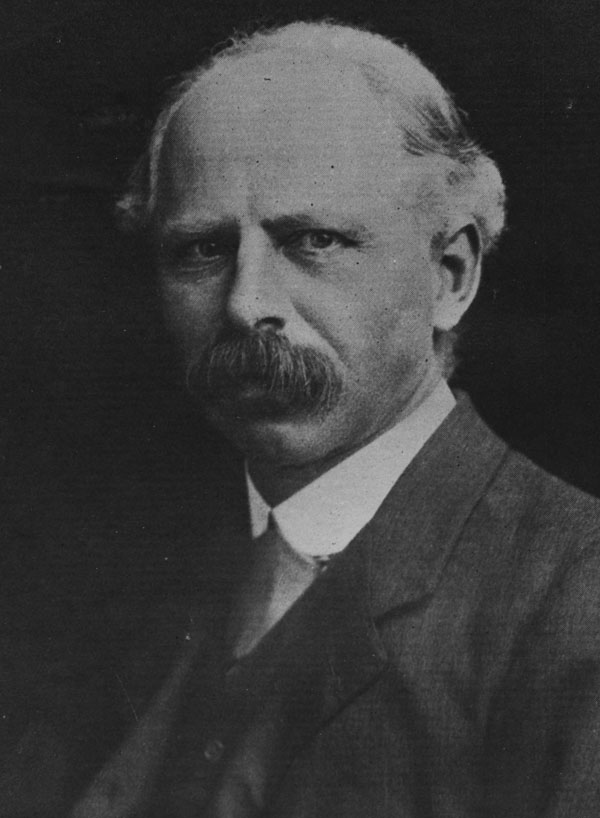
In 1921 and 1926 the Ratan Tata trustees confirmed funding for two further five year terms and suggested the department return to the direct management of LSE as the University of London lacked understanding of the department’s mission. They also stipulated that Ratan Tata funding focus on research.
In 1926 the Ratan Tata trustees refused to make the donation permanent and when the grant was due for the renewal in 1932 the trustees’ representative, Nandlal Muzumdar (formerly the first Indian president of LSE’s Students’ Union) wrote:
They desire me to reply that they have already helped your School with a substantial annual grant for a number of years; but as owing to the present acute depression, the revenue of the Trust has suffered considerably, they very much regret that they cannot see their way to continue the grant any longer.
Current Director William Beveridge expressed the gratitude of the School to the Ratan Tata Trustees on 10 November 1932. (LSE/CENTRAL FILING REGISTRY/652/B):
The Court asked me to convey to you in their name a cordial expression of their thanks for the help granted by the Ratan Tata Trustees to the Social Science Department of the School for many years. This has led on the one hand to the building up of a Department for training in Social Science which has become a permanent and important feature of the School and will be carried on with as little change as possible; on the other hand it has led to the granting of Ratan Tata Research studentships under which a number of valuable enquiries into social conditions have been made.
Today the relationship with the Ratan Tata Trust continues with the funding of Ratan Tata Fellowships.
To find out about LSE’s South Asia collections head to the LSE Library’s Traces of South Asia webpage.


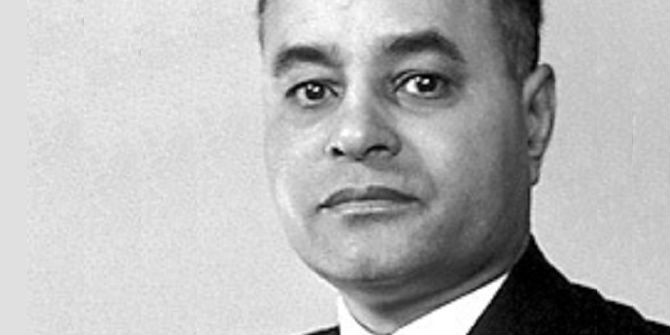


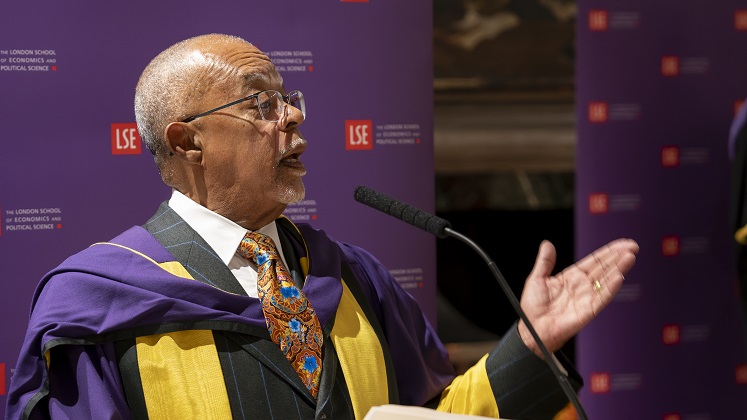
great article, thank’s for information